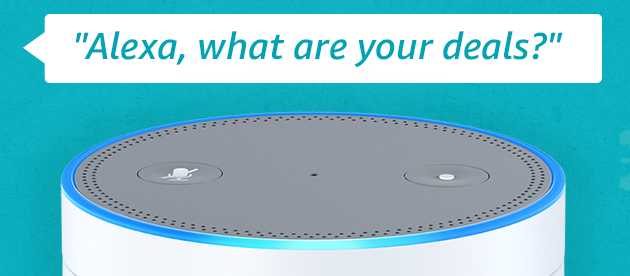When chatbots were first introduced to us, they were a novelty that fit a specific niche like customer service and technical support. But chatbots aren’t going to be the future of artificial intelligence in retail. The real push will come from smart voice assistants like Amazon Alexa, Google Assistant, Microsoft Cortana and Apple Siri.
Last year, when Amazon introduced voice shopping for Amazon Prime customers who also owned Amazon Echo smart speakers, that was a novelty as well. However, with Google now jumping into the fray with its own voice shopping feature on Google Assistant running Google Home devices, it looks like the retail industry has something solid to work with.
Chatbots are great for a lot of things like customer service, but voice assistants represent a very real future for the retail industry. By providing an additional channel for retailers to connect with their clients, voice shopping could potentially create a sub-industry within retail.
Amazon’s moves with Alexa-only deals, and the voice shopping weekend it hosted last year during the pre-holiday season, give millions of Echo owners access to Amazon’s massive catalog of products. Many of these products and deals are only available to Amazon Prime members, so Amazon has effectively created a customer traffic conduit from Echo to Prime.
Once these Echo customers are on Prime, Amazon benefits from the annual fee, as well as additional volume from voice shopping, while members with Echo devices get the convenience of simply telling Alexa what they want.
Google’s parent company, Alphabet, is also in the voice shopping game now, having announced the fact that customers who own a Google Home device will be able to use Google Assistant for shopping using their voice. Unlike Amazon, Google’s version of voice shopping brings in some of the biggest names in big box and wholesale retail, such as Costco and Whole Foods Market.
With just these two services, almost the entire gamut of online and offline shopping is covered – one by a major online retailer that gives you access to millions of products online, and the other by a network of chain stores that you can order from via Google Home.
This is critically important to the retail industry as a whole, which is already witnessing the shift from physical shopping to virtual online shopping. Voice shopping takes online shopping to a whole new level, leveraging the best of online and offline to make it easier than ever for the average consumer to buy things online.
But that’s not the whole story. Even though Amazon Echo and Google Home are selling very well, they don’t have the ability to completely disrupt the retail industry.
The real driver behind that change is the future integration of Amazon Alexa and Google Assistant into smart devices such as smartphones, refrigerators, cars and more.
When that happens, voice shopping will be more widely available as a standard form of ordering rather than a novelty that’s only used by a small percentage of consumers.
That’s when we’ll see voice shopping sales volumes grow and become a stable revenue stream for retailers.
The opportunity is there, and all signs point to the fact that voice shopping will only grow bigger with time. Voice shopping won’t disrupt the retail industry in a negative way. It will merely change the way we shop, and help integrate offline and online shopping into a unified experience.
Thanks for reading our work! Please bookmark 1redDrop.com to keep tabs on the hottest, most happening tech and business news from around the world. On Apple News, please favorite the 1redDrop channel to get us in your news feed.



